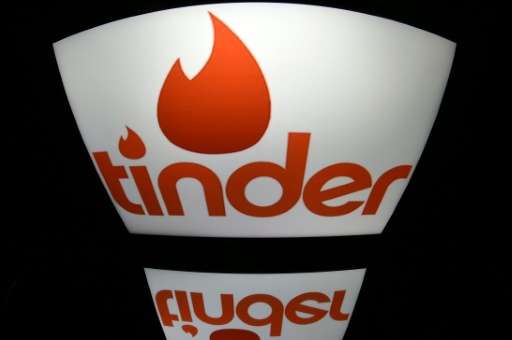Tinder made a name for itself by getting users to "swipe" right or left to find a date
Tinder users worldwide looking for their perfect political match swooned by and large for Hillary Clinton—all except for the Russians.
Sean Rad, chief executive of the mobile dating app, said Wednesday that the "Swipe the Vote" feature would appear again in next year's French presidential election after its debut in Britain's EU referendum in June.
"It was very interesting to see the points of view across the world. When we did this survey, we had hundreds of thousands of participants and we see clearly that Hillary was the favourite," he said at the Web Summit in Lisbon.
"In the US, in UK for instance, most of the places, Hillary was the favourite. In Russia, (Donald) Trump was the favourite."
Trump, who pulled off a stunning victory in Tuesday's election, had repeatedly flattered and praised Russian President Vladimir Putin on the campaign trail.
Moscow was happy to reciprocate the bromance. Russia's parliament broke into applause on learning of Trump's shock win, and Russian financial markets climbed, against an initial global slump on the news.
While Swipe the Vote attracted global interest among Tinder users, Rad said it was primarily meant to engage with millions of millennial Americans who were voting for the first time.
He did not reveal who he himself might have swiped for, but did take issue with the "locker room" tone of the campaign after Trump was exposed making degrading comments about women.
Tinder made a name for itself by getting users to "swipe" right or left to find a date.
'Clueless elites'
Questions on the election tool were designed to solicit users' political sympathies, including "Keep same-sex marriage legal?" and "Drill for oil and gas in the US?"
Rad's presentation wrapped up the third day of the week-long Lisbon Web Summit, an annual conclave of business leaders and technology startups known as "Davos for geeks".
Clinton had overwhelming support from Silicon Valley donors, and according to hacked emails published last month by WikiLeaks, even considered tapping Apple chief executive Tim Cook to be her vice presidential running mate.
Web Summit founder Paddy Cosgrave, addressing thousands of attendees from the main stage in a cavernous convention hall, dimmed the lights and urged everyone to raise aloft their torch-lit phones. Most complied as he rallied the tech community to "work towards a better world" despite Trump's election.
Bradley Tusk, who runs a tech-focused investment firm and was a political advisor to former New York mayor Mike Bloomberg, said Clinton's defeat revealed "cluelessness by the elites" in the face of popular anger at the status quo.
But he added that while Trump "seems an utter buffoon", US democracy would survive.
The billionaire Bloomberg mulled running as a third-party candidate against Trump and Clinton but eventually decided against.
© 2016 AFP
























